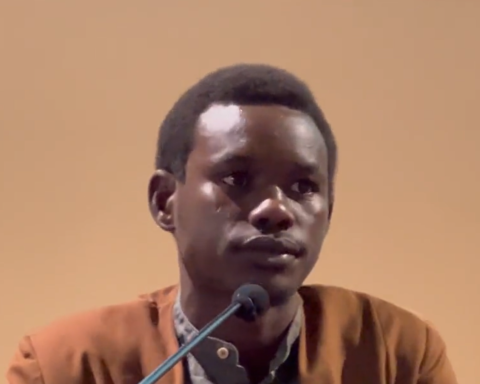Traduzione: Giovanni Marenda
More than 150 European and African organizations have joined the “March to Brussels – Rights no Deaths” call to demand a radical change in immigration policies from European institutions. The event, taking place in the “European capital“, will consist of two days of meetings and initiatives with a final action scheduled for Saturday, October 1 at 3 p.m. at Place du Luxembourg, not far from the EU Parliament.
“Papers for a dignified life and freedom of movement for all people,” said the sans-papiers collectives and anti-racist networks that met on Friday, September 30 at the DK social space in the Saint Gilles neighborhood. The March’s path – which was started mainly by the Basque, Spanish, and Catalan collectives of Caravana Abriendo Fronteras – has also reached Paris, Calais, and Liège in its approaching stages, and is supporting the mobilization for the regularization of Belgian sans-papiers, an ongoing struggle that has been characterized by demonstrations, hunger strikes, and occupations of churches and universities. Capitalism exploits and oppresses everywhere in the world, forcing people to leave their countries, but denying the possibility to move if not functional to its profit.
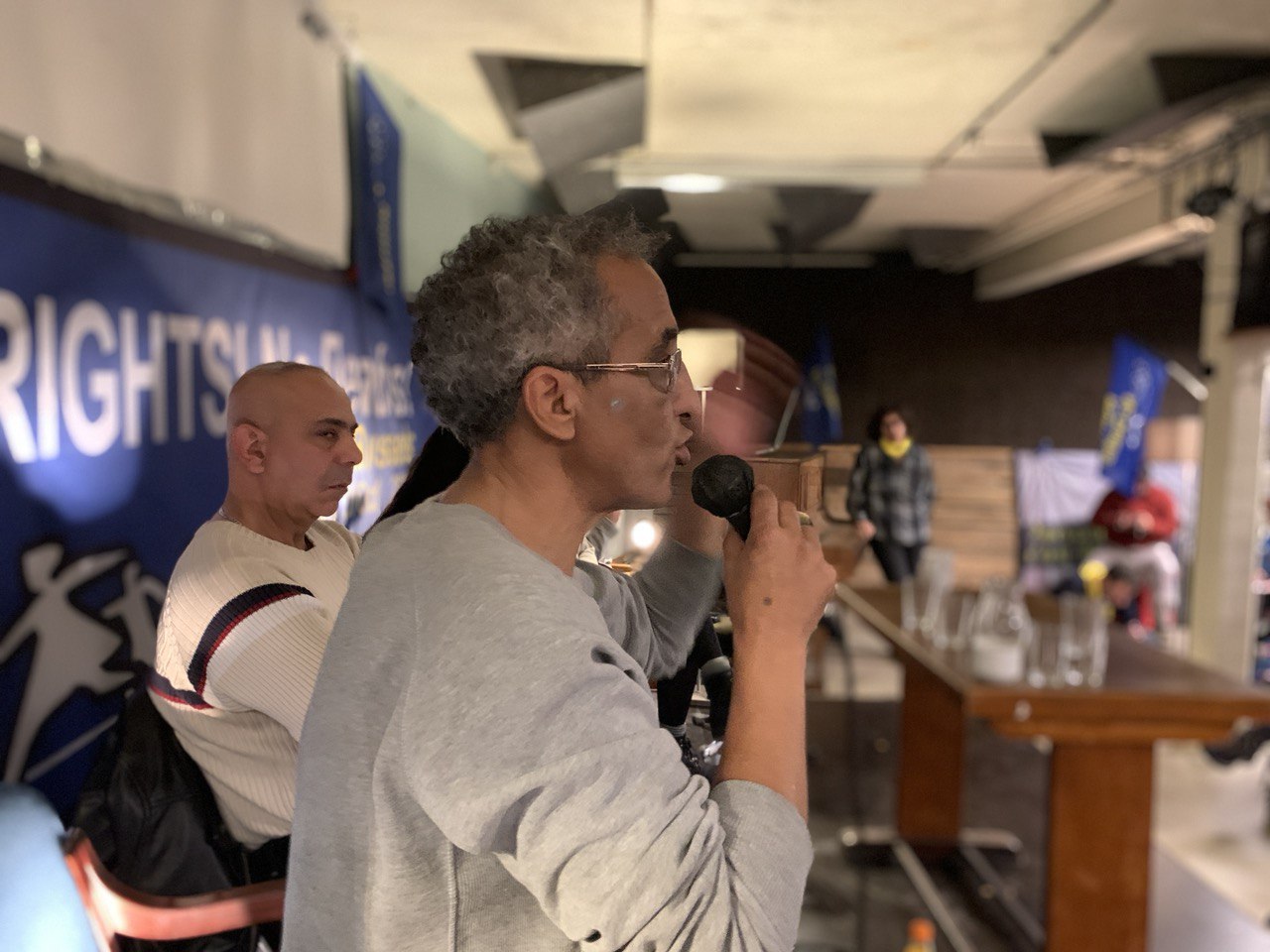
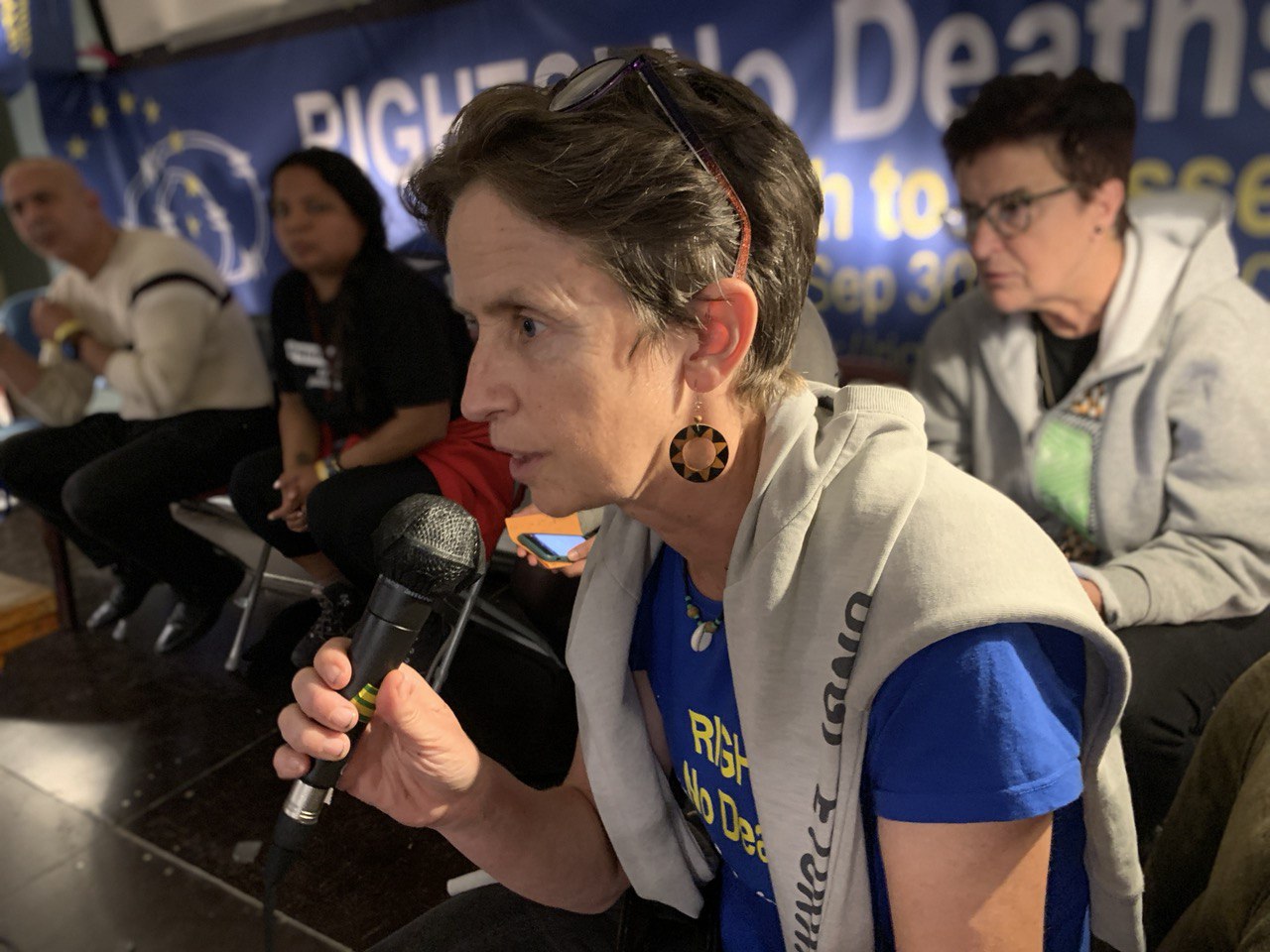
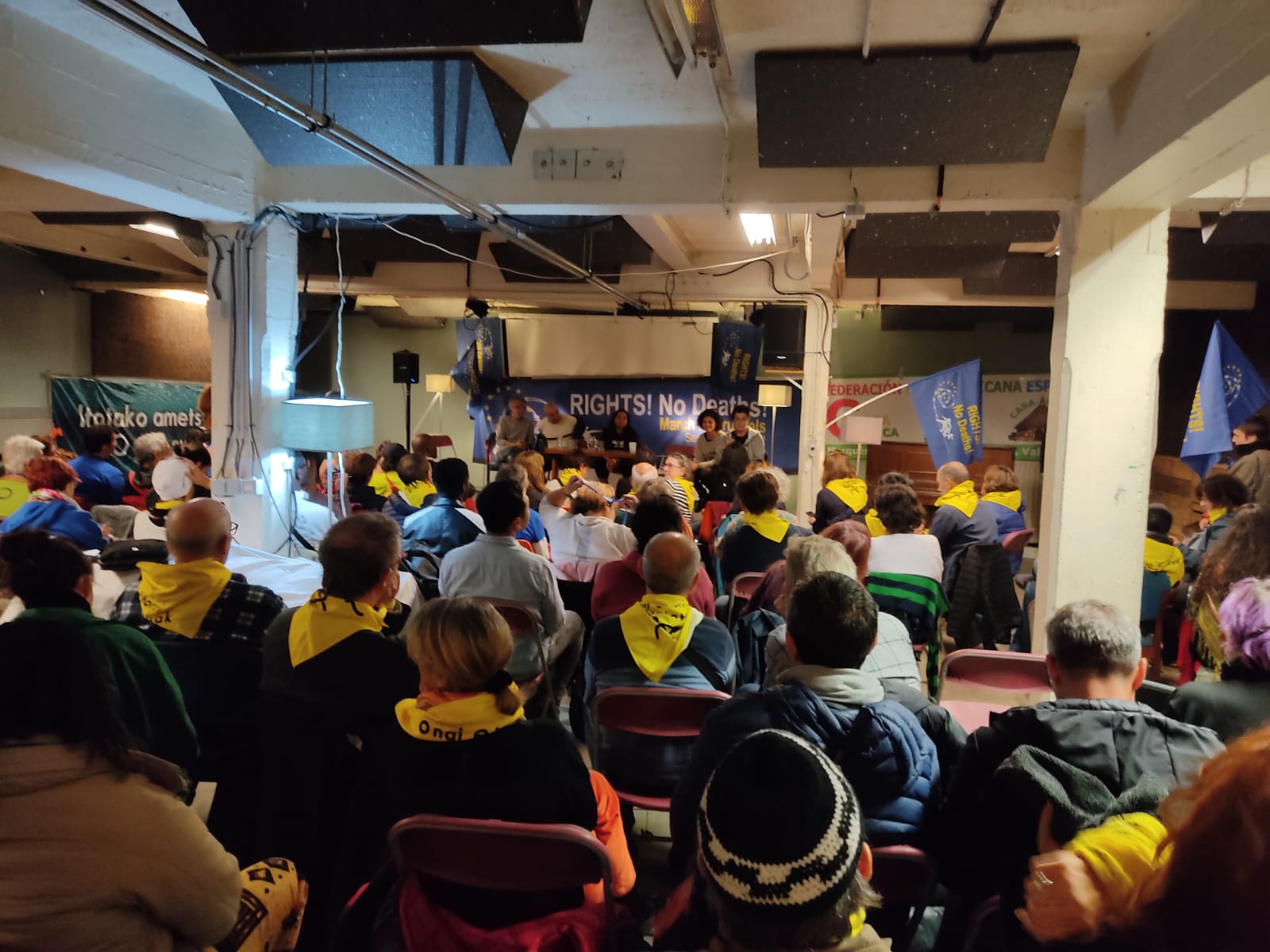
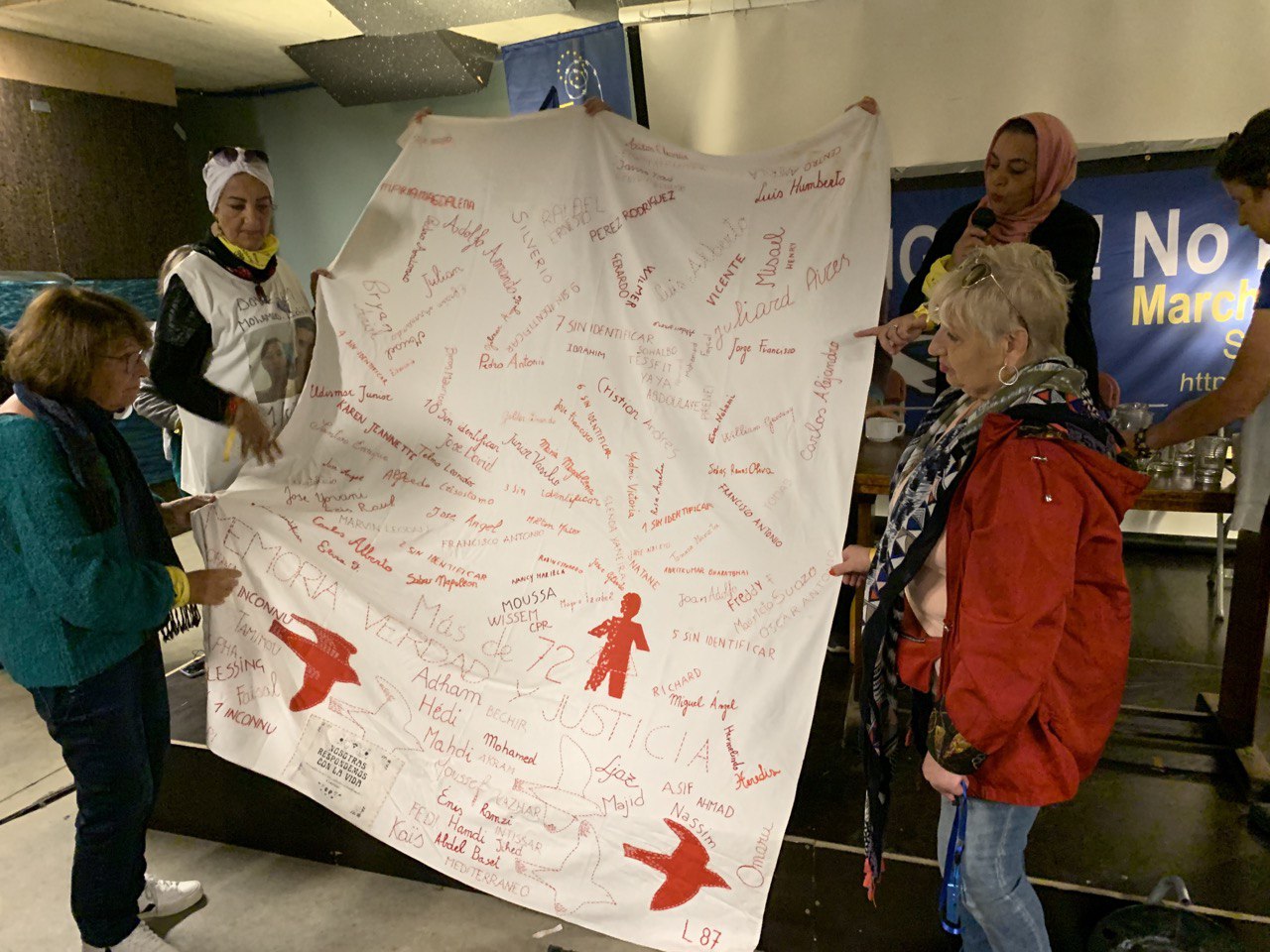
“We are struggling to be recognized. The economic system has ruined our health and our lives. When they tell us why we don’t go back to our home country, they insult us, but we have rights. The misery, precarity and concerns of undocumented workers must be heard and understood. That is why we organized demonstrations before and during the Covid-19 pandemic. On June 30, 2021, we occupied a church and a university to make our voices heard. We implemented a hunger strike, they think it is suicide but it is a way of dialogue. This strike attracted media attention and prompted the government to act. But the agreement reached has not been respected. We are still fighting for our basic rights, to demand the regularization of undocumented people, and we are here to make our struggle known and change this situation. We need to organize a European march to recognize undocumented workers,” explained Ahmed from L’union des Sans-Papiers pour la Régularisation.
“Ours is a struggle for fundamental rights,” adds Said of the Brussels Sans-Papier Struggle Coordination. “We started the squatting of a bank with two objectives. The first to denounce that the cause of the problem is the world economic system and the second to denounce the Belgian political system that exploits us. Forty-five percent of undocumented migrants are women working in houses and cafes. We call for a change in the legislation of the 1990s. We have submitted a proposal for regularization.”
The mobilization for regularization is also underway in Spain, which with its “RegularizacionYa“ campaign has denounced the tendency to invisibilize the struggle of and migrants applying for residence permits.
The representative also wanted to emphasize that the struggle must be broad and be able to create alliances with anti-racist networks: “One third of the population in an irregular administrative situation are children. They rejected our regularization proposal; the PSOE voted against it along with the right-wing parties. We have already collected 400,000 signatures for the popular initiative law and we want to reach 600,000. Economic migration is a forced displacement. The movements that support us, however, must have a decolonial reading to break with paternalism.”
Tunisian mothers also took the floor to recount the battle to find their missing children and family members in the Mediterranean and to remember all the border deaths. “We are here with the Shroud of Memory where we pinned the names with the red thread of the people who died trying to reach Europe. These are the names of people from Africa. The shroud is sewn together with the Italian sisters of Carovane Migranti. There are the names of the children of a Tunisian woman who disappeared in 2011. It is the first memory sheet and we already have eight of them,” they explained.

Three different initiatives took place in the afternoon, a meeting with the Marcia mundial des mujeres, the “Lobby tour” organized by Abolish Frontex, and a meeting in two housing spaces occupied by sans-papiers.
The housing occupations
In one of the buildings visited in the Marellos neighborhood live 28 people of different nationalities: 13 women and 5 men, mostly from African countries. The people living there are also involved in community activities. There are currently 18 occupations related to the sans-papiers movement with hundreds of people involved.
“The places,” says Azad, an activist of Afghan origin and one of the representatives of Coordination Sans-papiers Belgique, “are for people involved in the movements. They have a responsibility to their home and, at the same time, to the community.

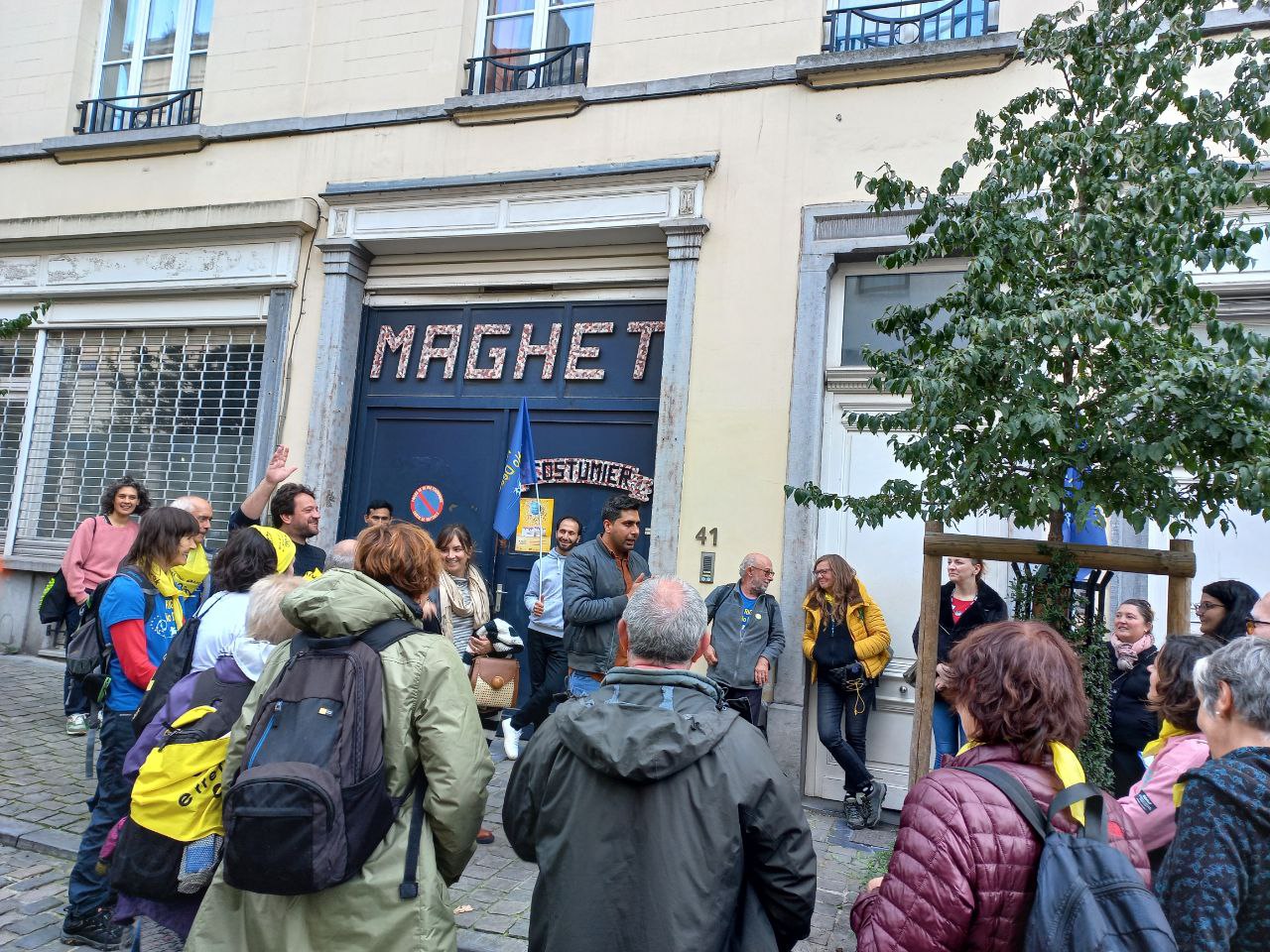
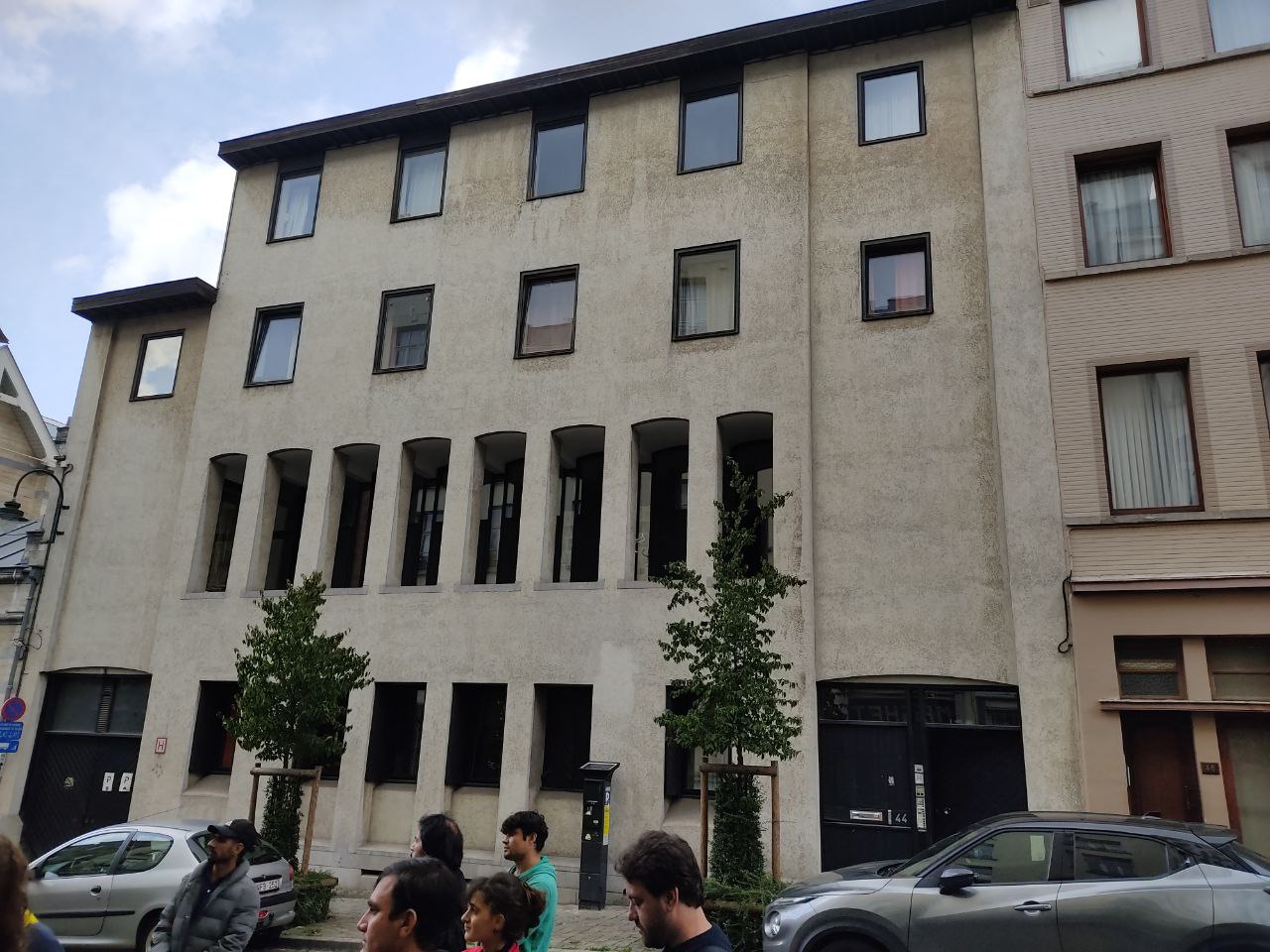
They do not pay rent, but they do pay utility bills, which they can only support through work in the informal economy because they cannot work under a regular contract. The occupations are mainly of empty municipal buildings and after a dispute with the city administration they have been granted until September 2023.”
The activist also explained that living in occupied housing enables the registration and use of public health services. “We demand public housing policies from the municipality, extraordinary regularization from the government, and the use of funds for public housing and not for the construction of expulsion centers. In Belgium there are already 5 detention and deportation centers, by 2025 they want to build 3 more.”
The Coordination of which he is a member is independent and self-organized, with no party affiliation. As of May 2021 they have collected 35,000 signatures to present a popular law for regularization, although only 25,000 are needed in Belgium. Discussion in the federal parliament will begin in November and it will become clear whether the process will lead to its approval.
Lobby tour
The presence of European institutions has profoundly transformed the city. Berlaymont, once a working-class neighborhood, now houses the large buildings of the Council, the Commission, the Directorates General, and of course the offices of the major stakeholders in the development of EU policies. Who are these people? The “lobbyists,” emissaries of large multinational corporations, other institutions and to a small extent NGOs, who by trade lobby institutional decision-makers in order to promote, block or induce policies that may favor or harm the entities that send them. The work of these figures is on the borderline between light and shadow, between (legitimate?) advocacy and corruption; there is a public registry that can be consulted online but registration is on a voluntary basis, and the data entered are not validated.
Within the perimeter of a city block are concentrated, often in the same building, the diplomatic missions to the EU and business representations of major European corporations.
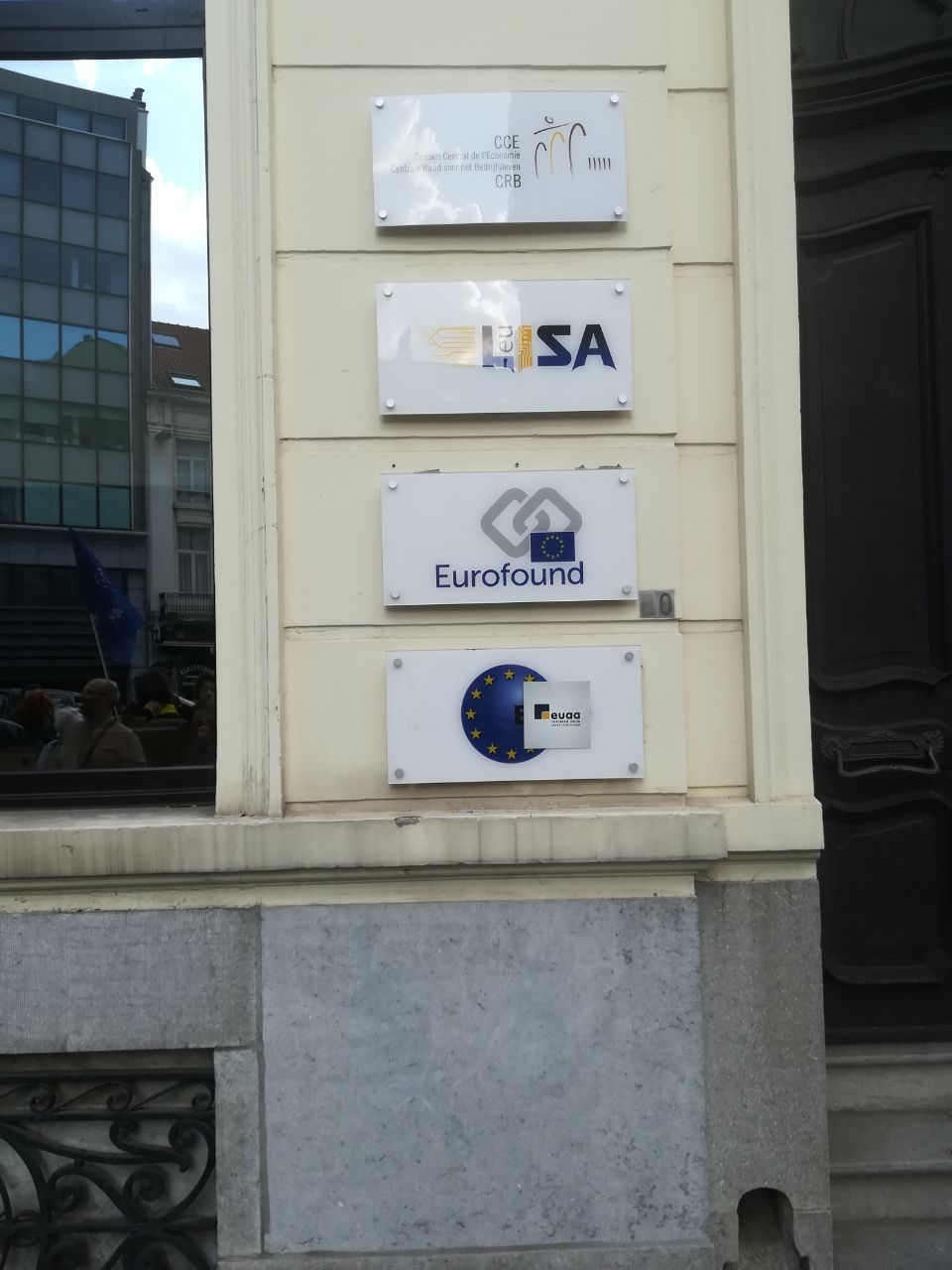

The tour immediately touches two crucial nodes: the headquarters of MBDA Missiles, a world leader in missile production participated by the European Airbus consortium, Italy’s Leonardo Finmeccanica, and Britain’s BEA. A breakthrough and another steel and glass palace, together with Campania Region the France-based Thales, promoter of border patrols through drones, whose product’s first experimental flight was organized by Frontex.
And finally Frontex, which has become the border police agency, shares headquarters with the less hostile – at least in name – European Union Agency for Asylum (EUAA-formerly EASO). However, the one in Brussels is only a liaison office of the decision-making headquarters in Warsaw.
European institutions have, on international treaty paper, the task of setting and managing the common policies of its member states. All power, however, belongs to a caste of technocrats who work to ensure maximum profit for their companies. There is no room for the promotion and support of people’s rights.
World March of Women
Since 2019, the World March for Women in France has addressed the issue of migration as related to the issue of domestic workers. In the committee of the union of sans-papiers workers, in an environment determined mainly by the male gender, women have felt the need to claim their own space to join the struggle against exploitation and marginalization of those who work for care and health, in an attempt to make inquiry on the territories and search for legal solutions for asylum claims and protection for women and their children.
The reflections and work they carry out with respect to regularization and machista violence start first of all from their direct experience witnessing the impossibility of recognition of domestic work and highlighting the oppression suffered in exploitation, lack of rights and health coverage, as well as sexual violence.
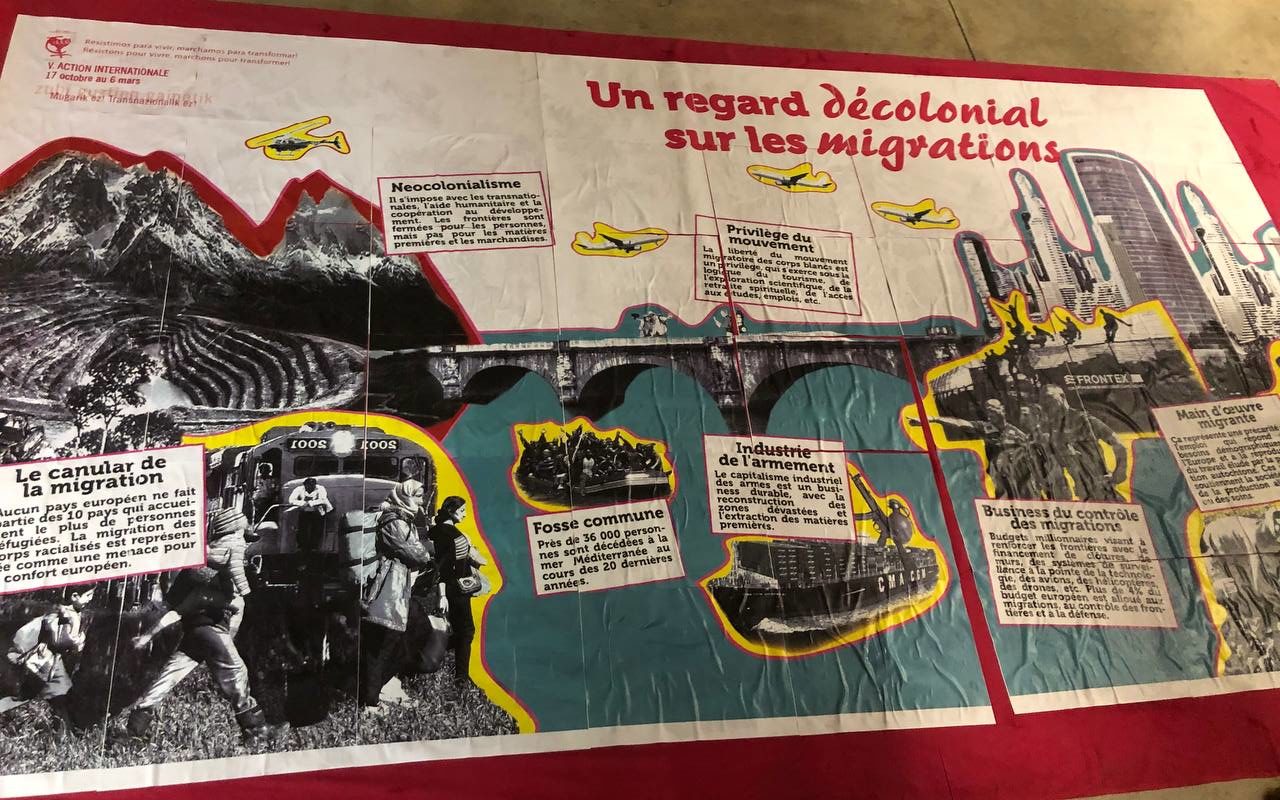
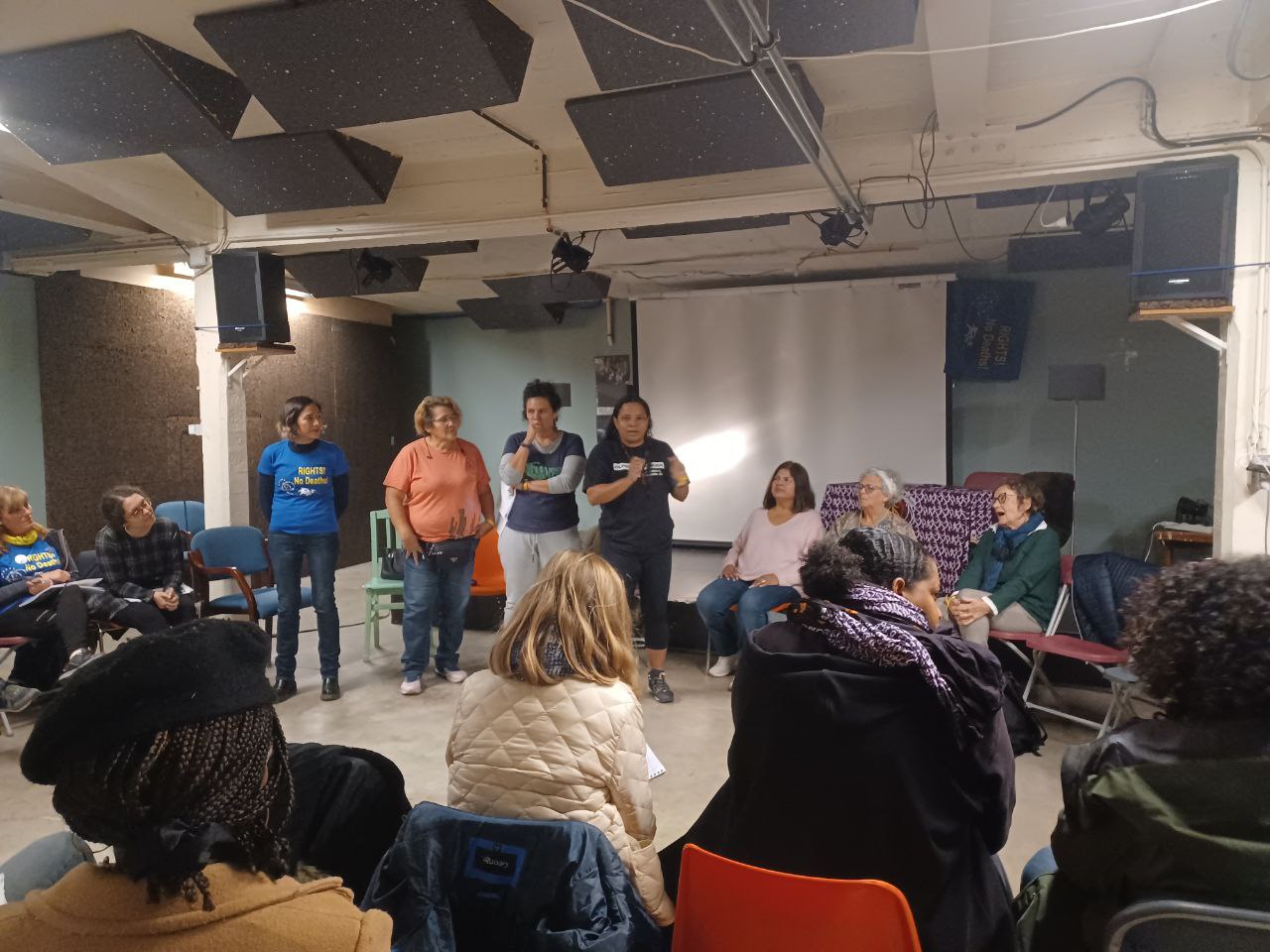
Thus, the women who intervened spoke of a double violence: domestic violence and institutional violence. There are, in fact, many cases of women who risk losing their documents in cases of sexist violence because institutions do not take responsibility for providing tools and information for women’s emancipation.
For them, this is a struggle against capital, against racism and against patriarchy, in contrast to the devious colonial narrative that asserts its domination according to a paternalistic logic, precisely because it is the global South that holds the resources of this system.

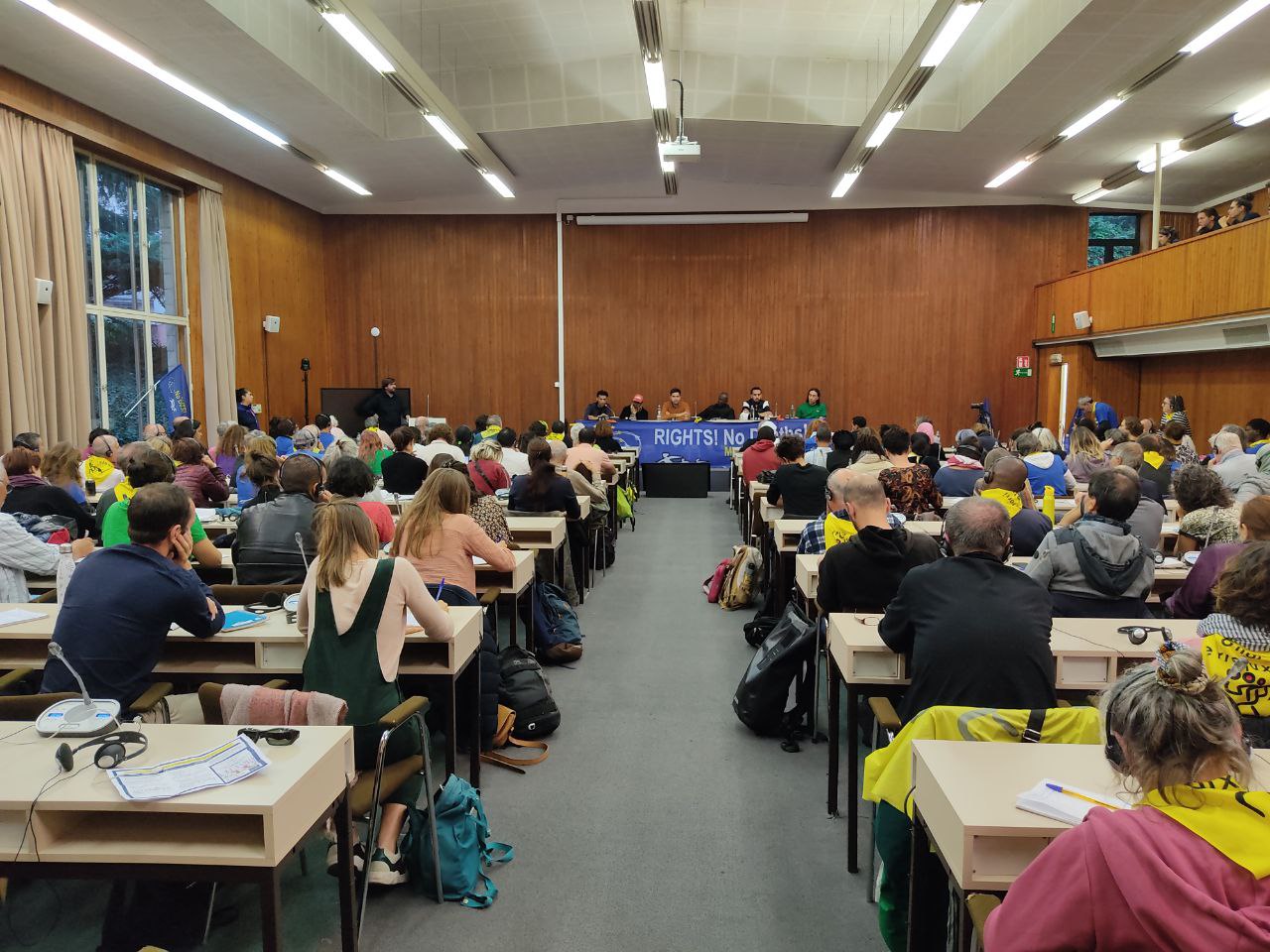

The day ended with the opening of the “People’s Summit” in which a number of European and African organizations, that have worked together to make this event happen, took the floor.
In the speeches, the main focus was on the need to create convergence at a time of economic crisis, when social inequalities and poverty are increasing. It is not a Europe of walls and agreements to outsource borders that the movements and associations want, but a policy of social justice, free movement and solidarity between the North and the South, where rights and dignity prevail over border oppression, exploitation and the criminalization of solidarity.
To achieve this there is no other way but to try to build common work to strengthen transnational solidarity networks, with the goal of sharing and converging on a public agenda to radically change these policies.
A call from the Maison des Associations Internationales to not be afraid, but to move to action, struggle and permanent mobilization.




